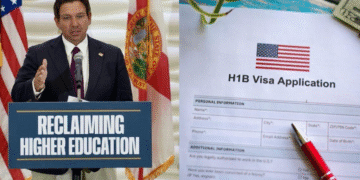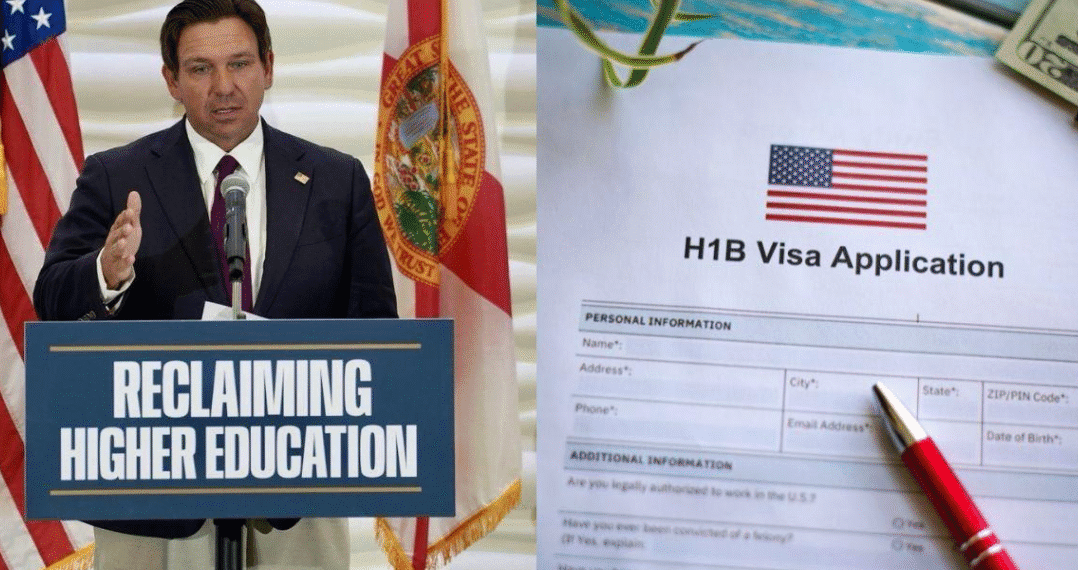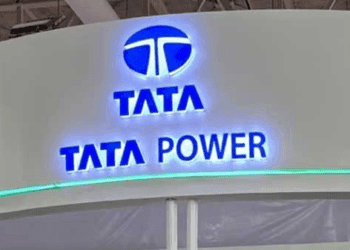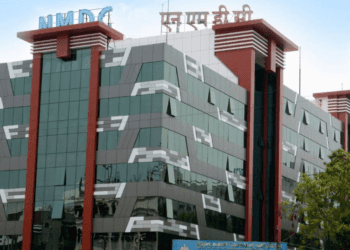Athira Sethu
Kochi, 30 Oct 2025
Florida Governor Ron DeSantis recently made a statement that he would like state colleges in Florida to end the practice of utilizing H1B visas to bring in foreign employees. He thinks that it is a negative image for the schools and that the jobs in the state should first be offered to Floridians.
Gov. DeSantis made the statement at a press conference, in which he stated, “If colleges can’t find the workers they need within Florida, it speaks volumes about them. We are producing a lot of individuals in this state, and they ought to have the capacity to fill these positions.”
He also instructed the Florida Board of Governors to refrain from using H1B visas in the state universities. According to DeSantis, Florida has the capability to source its talent from within the state or from other Americans. He stated, “If we can’t do this, then we really need to ask ourselves what’s wrong with the system.”
H1B visas are a common work visa employed by foreign nationals, particularly Indian tech employees, to work in the U.S. Numerous major tech firms depend on these visas, and the majority of individuals cleared for these visas are Indian. But H1B visas are not only available for tech employees. Teachers and physicians also employ them to work in the United States.
It is not known whether a state governor has the right to prohibit universities from using H1B visas. Previously, universities were permitted to employ foreign workers all year round without restrictions, in contrast with other sectors that must adhere to federal limits on the issuance of visas.
In another development connected to this, the U.S. government recently altered visa regulations. The Department of Homeland Security recently stated that it will no longer permit foreign laborers to keep working once their visa renewal is delayed. This new regulation, introduced on Thursday, provides that laborers should have to wait until the renewal is approved in order for them to keep working. This will specifically impact foreign workers from India, who constitute a huge number of the H1B laborers working in the U.S.
Such changes can make a significant difference for workers waiting for green cards, as well as their spouses and work-visa students. Under the new policy, workers with expired permits will not be able to keep working until their renewal is processed.
This change in visa policy may pose difficulties for employers as well as foreign workers, and it’s unknown how this will impact the U.S. job market in the future.



















